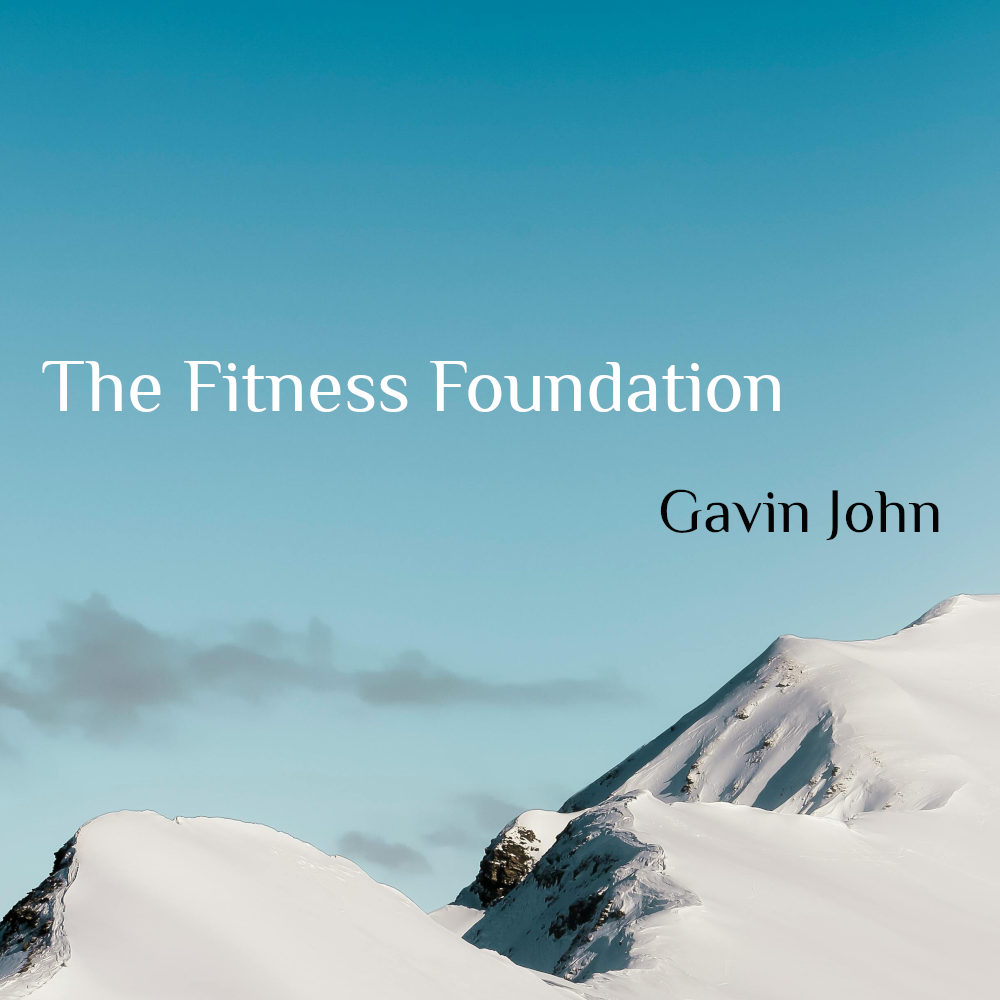The Fitness Foundation is a concept I have often thought about throughout my personal development journey. I have observed on many occasions, people who would consider themselves to be successful feeling ashamed of themselves. These people are incredibly self-conscious when it comes to their physical form. They see their success in other areas of life as a marker for their development as a human being. However, when they walk into a room, or wander through a shop, they blend into oblivion. There is nothing about them to suggest they are a well developed person at all.
Why is this?
It is because an aesthetic physical appearance says ever so much about you as a person. Let’s consider this concept, as I elaborate on why it is ESSENTIAL in modernity to be in OPTIMAL CONDITION.
Physical Culture and Morality
Firstly, I will begin in antiquity. The Ancient Greeks considered physical culture deeply intertwined with the moral and philosophical values of society. The Greeks were not only concerned with physical prowess for its own sake but saw it as a vital component of a well-rounded, virtuous life. This connection between physical culture and morality can be traced back to the concept of kalokagthia.
Kalokagthia is a concept that combines kalos (beautiful) and agathos (good), reflecting the ideal of a balanced individual who excels both in physical appearance and moral character.

The Greeks believed that cultivating the body was just as important as cultivating the mind. This belief was embodied in the educational system, particularly in the practice of paideia.
Paideia referred to the rearing and education of the ideal member of the ancient Greek polis or state. These educational ideals later spread to the Greco-Roman world at large, and were called humanitas in Latin. Instilling aristocratic virtues in the Athenian youth. The ideal man within the polis would be well-rounded, refined in intellect, morals, and physicality. Stressing a holistic training of the body, mind and soul.
Ancient Greeks studied Gymnastics. Though not what we imagine when we hear the word. Gymnastics encompassed all forms of physical exercise. It was essential for producing disciplined, courageous and honourable citizens. For instance, training in the gymnasium was not just about building strength and endurance; it was a means of fostering virtues like self-control, perseverance, and fair play.
The most notable example of the Ancient Greek reverence of physicality has to be the Olympic games. The Olympic Games were not merely a spectacle of physical ability but a religious and cultural festival in honour of the pantheon and Zeus in particular. Participation in the games was a noble pursuit. Successful participants would earn themselves and their city-state great honour. Therefore, athletes were seen to embody the highest ideals of Greek culture. These ideals consisted of excellence (arete), honour (timé) and glory (kleos). The Greeks valued sportsmanship and any unethical behaviour was seen as a serious moral failing.
The Fitness Foundation of Plato & Aristotle

Plato and Aristotle, arguably two of the most deeply considered philosophers further emphasised the moral dimension of physical culture. Plato, in the Republic, explained how the cultivation of the body was essential for the development of the soul. Aristotle discussed in Nicomachean Ethics the importance of maintaining a balance in life, an equilibrium that included physical activity. Therefore, neglecting the body will undoubtedly lead to moral and intellectual decay, while an excessive focus on physicality can result in the neglect of the soul.
Conscious Consumption
I have noticed a direct correlation between poor psychological wellbeing and a distance from being authentic towards our nature as human beings. This is understandable living in urban environments. However, urban environments are not all bad. However, remaining in a natural state of being is essential to remain fit and healthy physically, psychologically and spiritually.

“What is civilisation but a clearing in the forest?”.
– OshoThe choice to eat organic has become increasingly popular, driven by concerns about health, the environment, and the ethical treatment of animals. Eating organic is not just a dietary preference; it represents a commitment to a lifestyle that prioritises natural, sustainable, and responsible food production. The impact of this choice extends beyond individual health, it influences our surroundings in profound ways.
Let’s face it, numerous studies have shown that organic food is a healthier alternative. Organic farming practices prohibit the use of synthetic pesticides, herbicides, and fertilisers, which are commonly used in conventional farming. This is an issue that has arose with the advent of the merchant class directing society to obtain the most profit possible, their highest ideal. These chemicals can leave residues on food that may contribute to health problems over time, including hormone disruption, antibiotic resistance, and increased cancer risk. An absence of these chemicals maintains higher levels of vitamins, minerals, and antioxidants in vegetables and fruit. Additionally, organic animal products, such as meat, milk, and eggs, come from animals that are not treated with antibiotics or growth hormones. This reduces the risk of antibiotic resistance, a growing public health concern.
Environmental & Societal Implications of Organic Food Consumption
Beyond our own health, eating organic has significant benefits for the environment. Organic farming practices are designed to be sustainable and to protect the natural ecosystem. By avoiding synthetic chemicals, organic farming helps preserve soil quality, promote biodiversity, and protect water resources from contamination. When we choose to support organic farming we are investing in a food system that prioritises sustainability, animal welfare, and fair labour practices. Moreover, organic farming often emphasises ethical treatment of animals. We do not want to eat animals that have been consistently stressed. This will surely have an impact on the nutritional quality of the meat.
Engaging with Nature and the Environment
As mentioned previously, in an increasingly urbanised world where screens dominate our daily lives, the simple act of spending time in nature has become more important than ever. The benefits of immersing ourselves in natural surroundings is profound. This practice will reap immense physical and psychological benefits. Personally, I notice a sense of clarity from spending time in nature, whether hiking, wild-swimming or even just walking in the countryside where I live.
Exposure to sunlight is another crucial benefit of being outdoors. Sunlight is a natural source of vitamin D, which is essential for bone health, immune function, and mood regulation. I would suggest doing some form of physical training in a green space, where there is adequate sunlight for a period of time. Green spaces have been shown to lower blood pressure and cortisol, the hormone associated with stress.
The Psychological Benefits of Being in Nature
Beyond the physical advantages, being in nature offers significant psychological benefits. Nature has undoubtedly a calming effect on the mind, helping to reduce stress, anxiety and depression. The sights, sounds, and smells of the natural world can soothe the nervous system, providing a respite from the overstimulation of urban environments. Spending time in nature also enhances cognitive function. Research has demonstrated that people who take walks in natural settings experience improved memory, concentration, and creativity.
Natural environments produce a restorative experience!
Spending time in nature also fosters and develops a sense of connection to our natural environment. Reminding us, that we are custodians of nature, not exploiters. We need nature to live in this world.

The Fitness Foundation
A healthy physical foundation is essential for achieving our goals in life. This is the bedrock where upon all our other aspirations are built. Physical health directly influences our energy levels, mental clarity, and emotional resilience, all of which are crucial for pursuing and attaining our ambitions. When we prioritise our physical well-being through regular exercise, balanced nutrition, and sufficient rest, we equip ourselves with the stamina and focus needed to tackle challenges and seize opportunities.
Moreover, a healthy body supports a healthy mind. Without a solid physical foundation, even the most well-laid plans can falter due to fatigue, illness or burnout.
In essence, nurturing our physical health is an investment in our future success.
By prioritising our physical well-being, we set ourselves up for long-term success and fulfilment in all areas of life.

